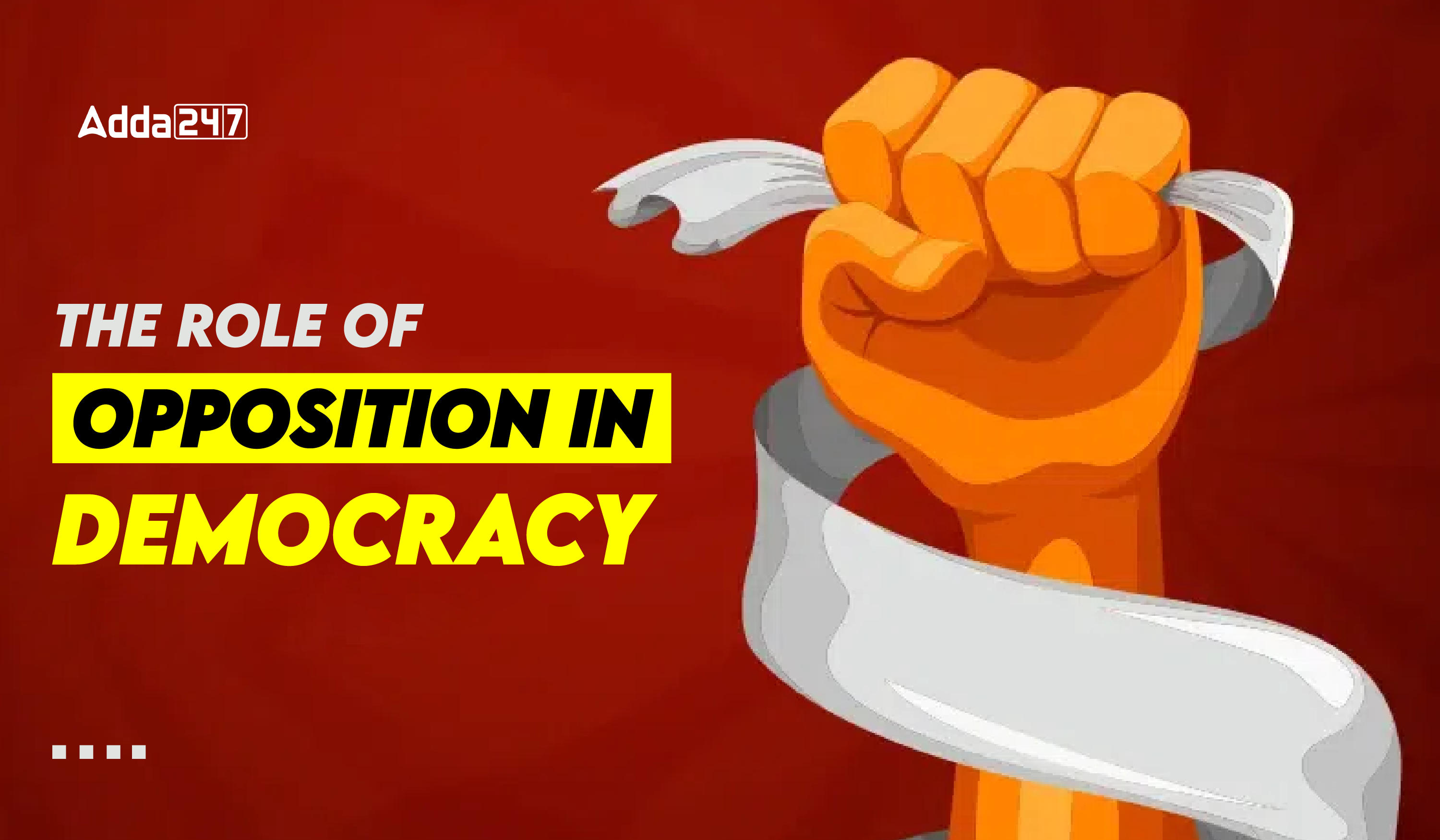Table of Contents
In a democracy, the opposition is not just a mere formality but a cornerstone of the political system. It ensures that the government remains accountable, transparent, and responsive to the needs of the people. By scrutinizing government actions, raising public concerns, and providing constructive criticism, the opposition plays a crucial role in maintaining the health of a democracy. Rahul Gandhi is currently serving as Leader of the Opposition in the Lok Sabha.
What is the Opposition in Democracy?
The opposition consists of the largest non-government party or coalition of parties elected by the people. These members, who are not part of the ruling government, serve as a critical voice in the legislative process. Their primary role is to question the government’s decisions and actions, ensuring that all policies and laws are in the best interest of the public. The opposition also highlights significant issues and concerns, making sure that the government does not overlook any matter affecting the people.
Constructive Criticism and Accountability
One of the primary responsibilities of the opposition is to provide constructive criticism of the government’s policies, plans, bills, laws, and programs. By doing this, they help ensure that the government works for social welfare and the public good. Constructive criticism is essential as it highlights the strengths and weaknesses of government initiatives, leading to better governance.
Holding the Government Accountable
A crucial role of the opposition is to hold the ruling government accountable. Through debates, questions, and discussions in Parliament, the opposition ensures that the government’s actions are transparent and in the public interest. This process of accountability prevents misuse of power and promotes good governance.
Bridging Civil Society and Government
The opposition acts as a bridge between civil society and the government. They carry the suggestions and concerns of various social groups to Parliament, ensuring that different voices are heard and considered in policymaking. This role is vital in a diverse society, where the interests of various communities need to be balanced and addressed.
Supporting Good Decisions
While the opposition’s primary role is to critique the government, it is also essential for them to support decisions that are beneficial and in the public interest. Constructive opposition means not opposing for the sake of opposition but collaborating with the ruling party on initiatives that promote the common good. This balanced approach fosters a cooperative political environment.
Ensuring Checks and Balances
The opposition provides necessary checks and balances in the functioning of democracy. Members of the opposition are included in various Parliamentary committees, where they have the opportunity to scrutinize new legislation and other government actions. These committees ensure that laws and policies are thoroughly examined before implementation.
Using Media to Engage the Public
The opposition uses media to reach the electorate with its views and critiques of the government. Through press conferences, social media, and public speeches, they communicate their stance on various issues to the public. This engagement is vital for maintaining a vibrant democracy where citizens are well-informed and can hold their representatives accountable.
Challenges Faced by the Opposition
The effectiveness of the opposition can be hampered by several challenges. Fragmentation within the opposition, where multiple parties hold different ideologies and agendas, can weaken their ability to present a united front. Additionally, the opposition sometimes engages in disruptions and walk-outs during Parliamentary proceedings, hindering constructive dialogue and legislative progress.
Strengthening the Role of the Opposition
To enhance the opposition’s role in enriching democracy, several measures can be taken. Provisions should be made to ensure that the opposition has the right to hold the ruling party accountable without resorting to disruptions. Implementing “Opposition Days,” where certain days are allotted for the opposition to set the Parliamentary agenda, can ensure that their concerns are addressed.
Conclusion
A functional Parliamentary democracy relies on the political maturity of its elected representatives, who must maintain checks and balances on the executive and legislature. A strong and effective opposition is indispensable in a modern democracy, ensuring that the government remains accountable and responsive to the needs of the people. By playing its crucial role, the opposition preserves the true essence of democracy and upholds the interests of the public.



 TSPSC Group 1 Question Paper 2024, Downl...
TSPSC Group 1 Question Paper 2024, Downl...
 TSPSC Group 1 Answer key 2024 Out, Downl...
TSPSC Group 1 Answer key 2024 Out, Downl...
 UPSC Prelims 2024 Question Paper, Downlo...
UPSC Prelims 2024 Question Paper, Downlo...




